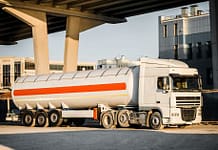The choice of a coffin is a deeply personal and symbolic decision, reflecting cultural, religious, and environmental values. In recent years, the funeral industry has witnessed a surge in the diversity of coffin options, offering individuals and families the opportunity to choose a final resting place that aligns with their beliefs and values. In this comprehensive guide, we will explore various types of coffins available in the market, ranging from traditional to eco-friendly and biodegradable options, highlighting their features and benefits.
Traditional Coffins:
Traditional coffins, also known as caskets, have been the longstanding choice for many families. These coffins are typically crafted from materials like wood, metal, or fiberglass and are adorned with various finishes such as polished wood veneers, plush interiors, and decorative handles. Traditional coffins come in a variety of shapes and sizes, catering to individual preferences and cultural traditions. They offer a timeless and dignified option for those who seek a classic and elegant final resting place.
Eco-Friendly Coffins:
As environmental consciousness grows, so does the demand for eco-friendly coffin options. These coffins are designed with sustainability in mind, using materials that have minimal impact on the environment. Bamboo coffins, for example, have gained popularity due to the rapid regrowth of bamboo and its biodegradability. Other eco-friendly options include coffins made from recycled cardboard, willow, or seagrass. These materials provide a natural and eco-conscious alternative for those who wish to minimize their environmental footprint even in their final moments.
Biodegradable Coffins:
Biodegradable coffins take the commitment to eco-friendliness a step further by ensuring that the entire coffin, including its components, breaks down naturally over time. These coffins are often made from materials such as recycled paper, cardboard, or even salt. The use of such materials ensures a minimal impact on the environment, allowing the coffin to decompose and return to the earth without leaving a lasting footprint. Biodegradable coffins are a popular choice for individuals who prioritize sustainability and wish to contribute to a greener planet.
Wicker and Willow Coffins:
Wicker and willow coffins provide a rustic and natural alternative to traditional options. Crafted from woven willow or other sustainable materials, these coffins offer a unique aesthetic appeal. Beyond their visual appeal, wicker and willow coffins are lightweight and biodegradable, making them an eco-friendly choice. The weaving process allows for customization, and families can choose from various designs and styles to reflect the personality and preferences of the departed.
Picture Coffins:
For those who seek a more personalized touch, picture coffins provide a unique and sentimental option. These coffins can be customized with images, designs, or even photographs that reflect the life, passions, and memories of the deceased. Picture coffins offer a way to celebrate the individuality of the departed and provide a lasting tribute that resonates with family and friends. This type of coffin allows for a deeply personal and emotionally meaningful farewell.
Biodegradable Urn Coffins:
As an innovative and eco-friendly option, biodegradable urn coffins combine the concept of a coffin and an urn. These biodegradable coffins are designed to hold cremated remains and are crafted from materials like recycled paper or natural fibers. The coffin serves as a vessel for the ashes, allowing for a complete and environmentally friendly return to the earth. Biodegradable urn coffins offer a compromise for those who choose cremation but still wish to have a physical presence during a traditional burial.
Conclusion:
Choosing a coffin is a poignant decision that reflects not only the wishes of the departed but also the values and beliefs of those left behind. The diverse range of coffin options available in the market today allows individuals and families to make choices that align with their cultural, environmental, and personal preferences. Whether opting for a traditional, eco-friendly, biodegradable, or personalized coffin, the emphasis is on creating a meaningful and respectful final resting place. As the funeral industry continues to evolve, the availability of diverse coffin options ensures that everyone can find a fitting tribute to honor their loved ones in a way that resonates with their values and beliefs.








